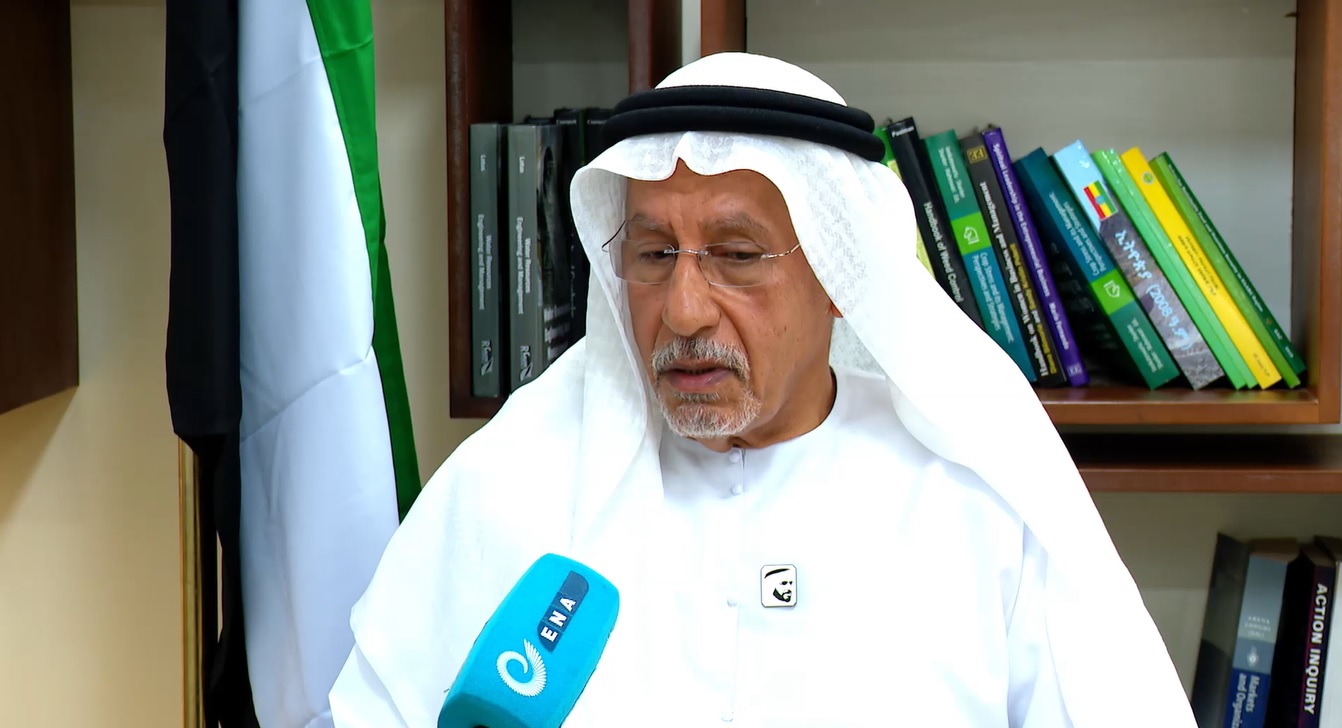Date Palm Farming Would Drive Ethiopia’s Climate and Economic Strategy, Khalifa Award Says - ENA English
Date Palm Farming Would Drive Ethiopia’s Climate and Economic Strategy, Khalifa Award Says

Addis Ababa, August 23, 2025 (ENA)— The date palm farming is not just an economic driver but a vital tool for Ethiopia’s comprehensive strategy to combat climate change, Secretary General of the Khalifa International Date Palm Award, Abdelouahhab Alboukhari Zaid stressed.
Prime Minister Abiy Ahmed is spearheading a transformative shift in Ethiopia's agricultural paradigm, redefining the nation's dry, harsh lowlands to cultivate crops based on the agro-ecology of farmlands.
Earlier today, the Ministry of Agriculture and the Khalifa International Award for Date Palm and Agricultural Innovation jointly gave a press briefing about the first International Date Palm Festival that Ethiopia is set to host in collaboration with the Khalifa International from August 26 to 28, 2025 in Semera, Afar region.
The festival is aimed at unlocking the country’s significant potential for date palm cultivation by creating a dynamic environment for industry growth and collaboration.
Central to this new agricultural strategy is the large-scale development of the date palm industry. The date palm is remarkably suited to Ethiopia's arid and hot climate, thriving under drought and high temperatures that challenge most other crops.
In an interview with ENA, Secretary General of Khalifa International Date Palm Award, Abdelouahhab Alboukhari Zaid stated that while some date farms exist in Ethiopia's Afar region, the industry needs to scale up with high-quality production to become a viable international competitor.
The festival would serve as a vital platform for this transition as some 50 Ethiopian farmers would gain essential knowledge and skills from experts who will join the event from18 different countries, he said.
He explained that the training at the festival focuses on cultivating date varieties that are highly demanded in international markets, particularly in Europe and the United States.
This strategic focus dates farming aims to generate crucial foreign exchange earnings and create significant employment opportunities, especially for women, in what is a highly labor-intensive industry.
The annual competition will also be held, featuring categories such as best fruit and innovative packaging to inspire a culture of excellence, he said.
Zaid explains:"The competition motivates farmers to innovate and enhance their product quality, which is fundamental for achieving international success."
Ethiopia’s date palm initiative is significantly bolstered by strategic global partnerships, most notably with the United Arab Emirates.
Zaid added the excellent relationship between the two countries, noting UAE’s extensive expertise in desert farming is invaluable for adapting and scaling up the initiative in Ethiopia.
This collaboration extends to numerous other organizations, including the Food and Agriculture Organization (FAO), a German innovation institution, Arab Agricultural Development, ICARDA, and ECWA, he elaborated.
The Secretary General appreciated the high-level involvement of the UAE Embassy in Addis Ababa and Ethiopia’s Ministry of Agriculture, underscoring the strong, high-profile support for this project.
This multinational cooperation represents a new model of relationship-building based on shared objectives and mutual benefits, it was learnt.
By drawing on the specialized knowledge of countries with long-standing expertise in date palm cultivation, Ethiopia is dramatically accelerating its learning curve and building a resilient, sustainable agricultural foundation.
The growth of the date palm industry aligns perfectly with Ethiopia’s broader Green Legacy environmental agenda. This national movement has already resulted in the planting of billions of trees to restore degraded landscapes, improve soil health, and combat deforestation and desertification.
Zaid highlighted that date palms are a powerful asset in this effort with significant environmental benefits.
A single date palm can absorb approximately 360 kilograms of CO2 each year, making a substantial contribution to carbon reduction, he emphasized.
This impressive carbon absorption capability positions Ethiopia as a forward-thinking nation in the world to increasingly focus on carbon reduction.
Promoting large-scale date palm farming allows Ethiopia to offset its industrial emissions, helping the country move toward a positive carbon balance and strengthening its standing in international environmental forums, he pointed out.
Moreover, he elaborated that the date palm's inherent drought tolerance makes it ideal for regions particularly vulnerable to climate change, simultaneously enhancing food security and ensuring environmental sustainability.
This makes the date palm both just an economic driver and a vital tool in Ethiopia’s comprehensive strategy to combat climate change, he stressed.
The Green Legacy initiative focuses on diversifying crops and ensuring productive land use as a strategic response to Ethiopia’s historical environmental challenges.
The goal is to secure Ethiopia’s food supply and economy while also contributing to the global fight against climate change.
Ethiopia’s pioneering date palm industry is a testament to the nation’s determination to chart a new agricultural course defined by innovation, collaboration, and environmental stewardship.
By transforming its drylands into productive, climate-smart farms, Ethiopia is setting a powerful example for other nations facing similar challenges.